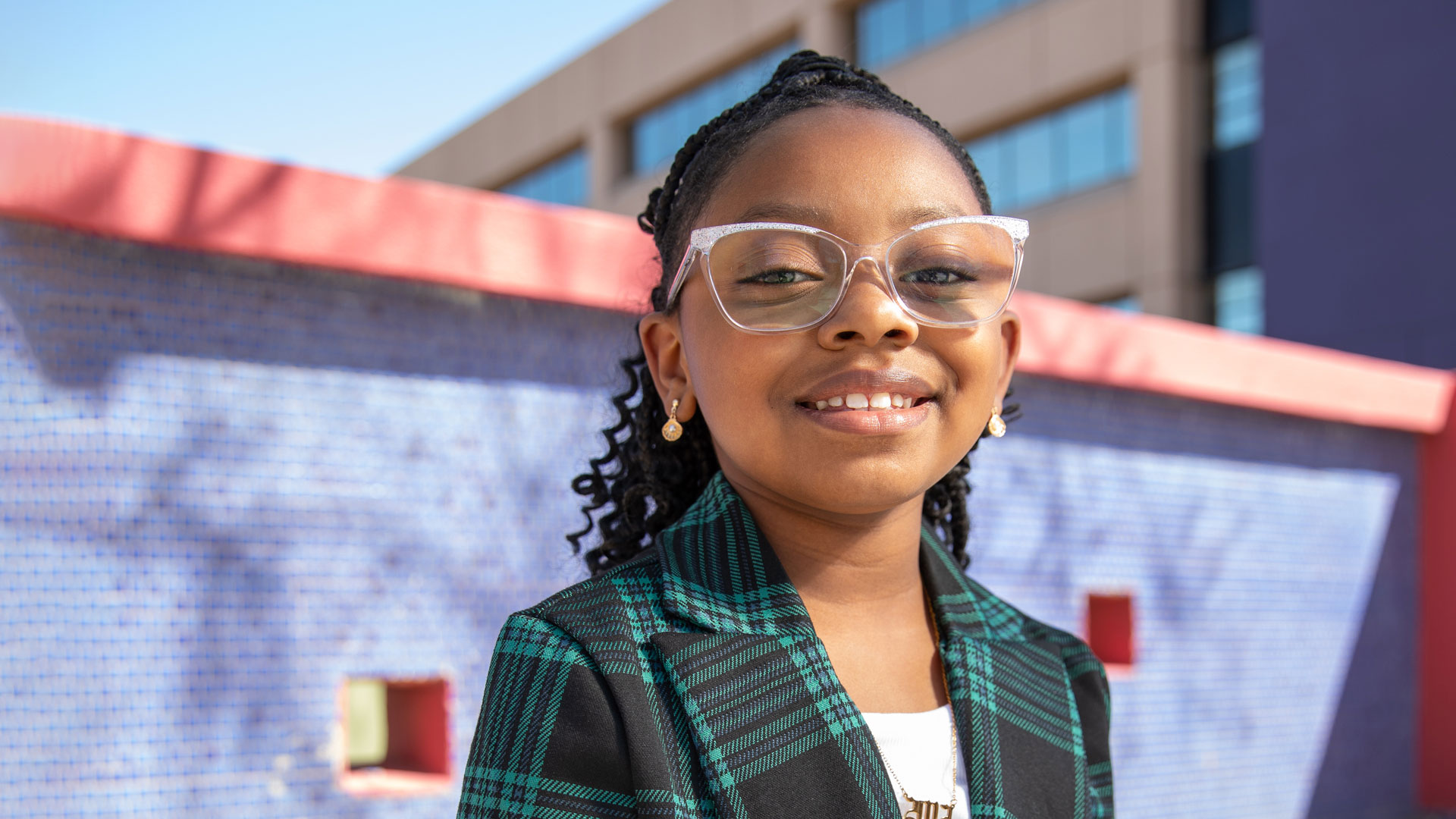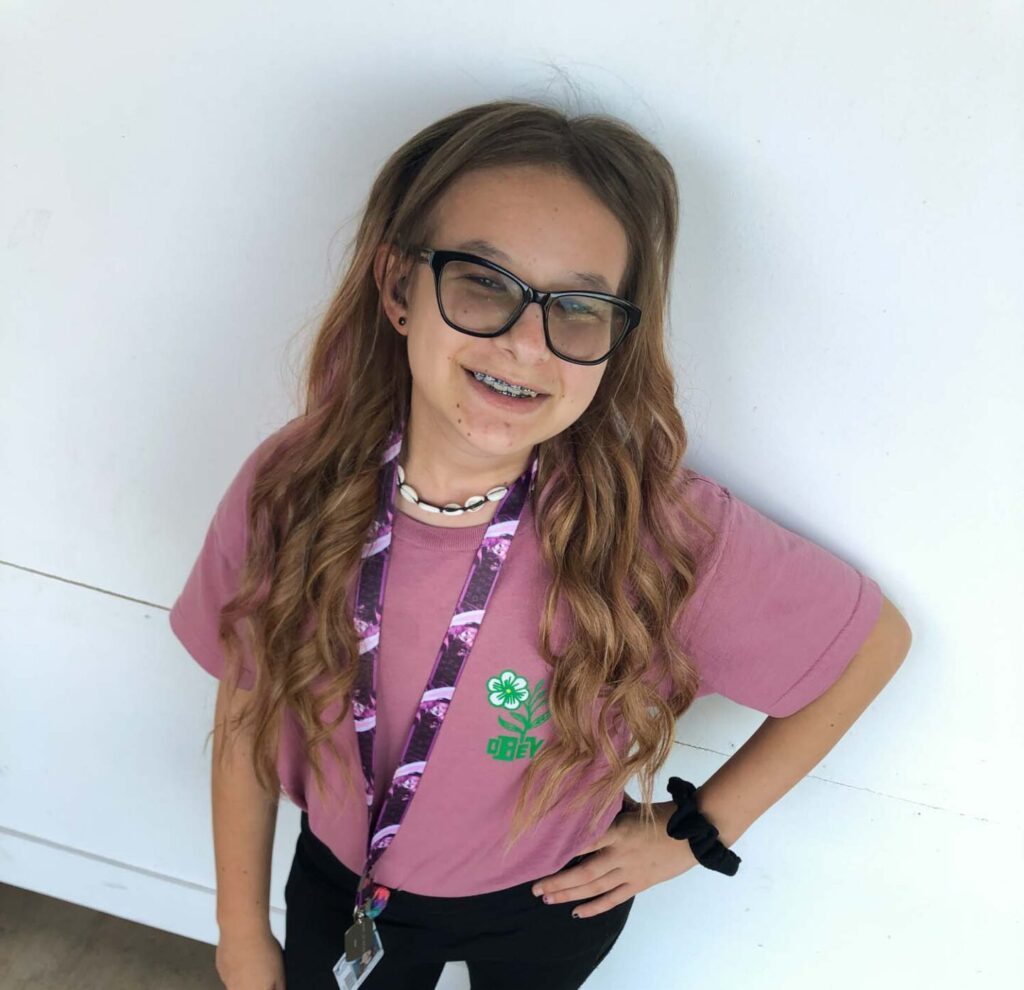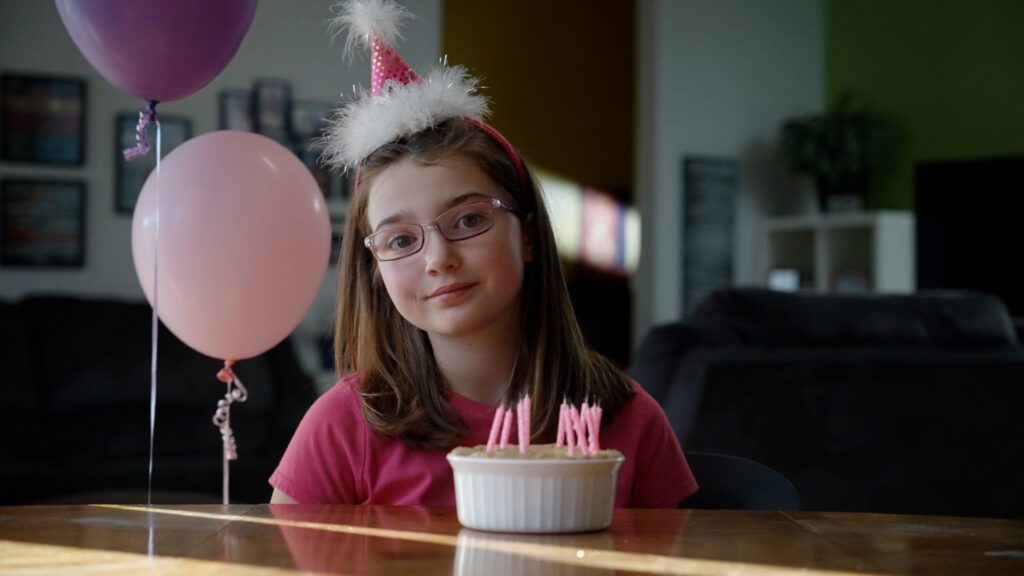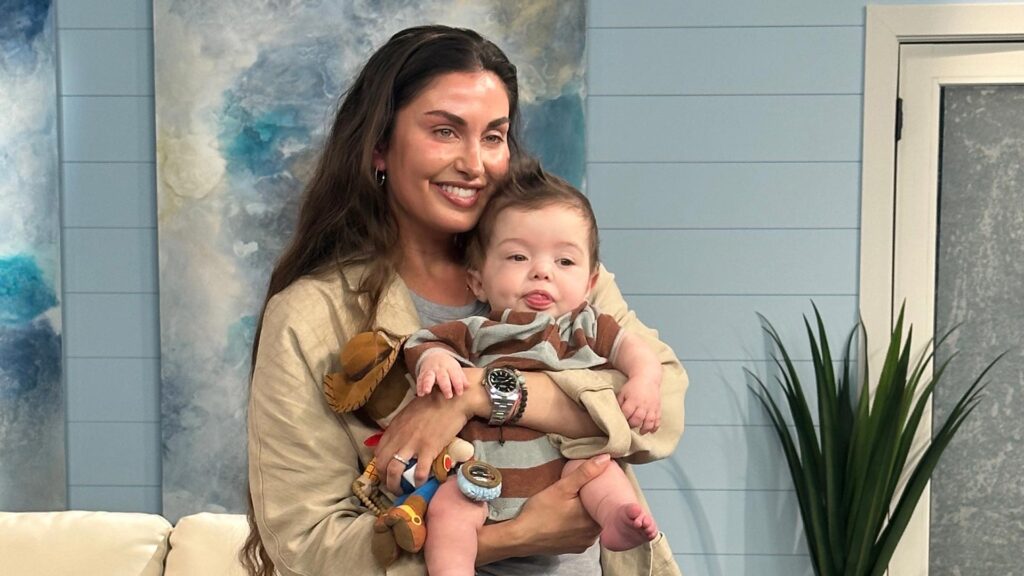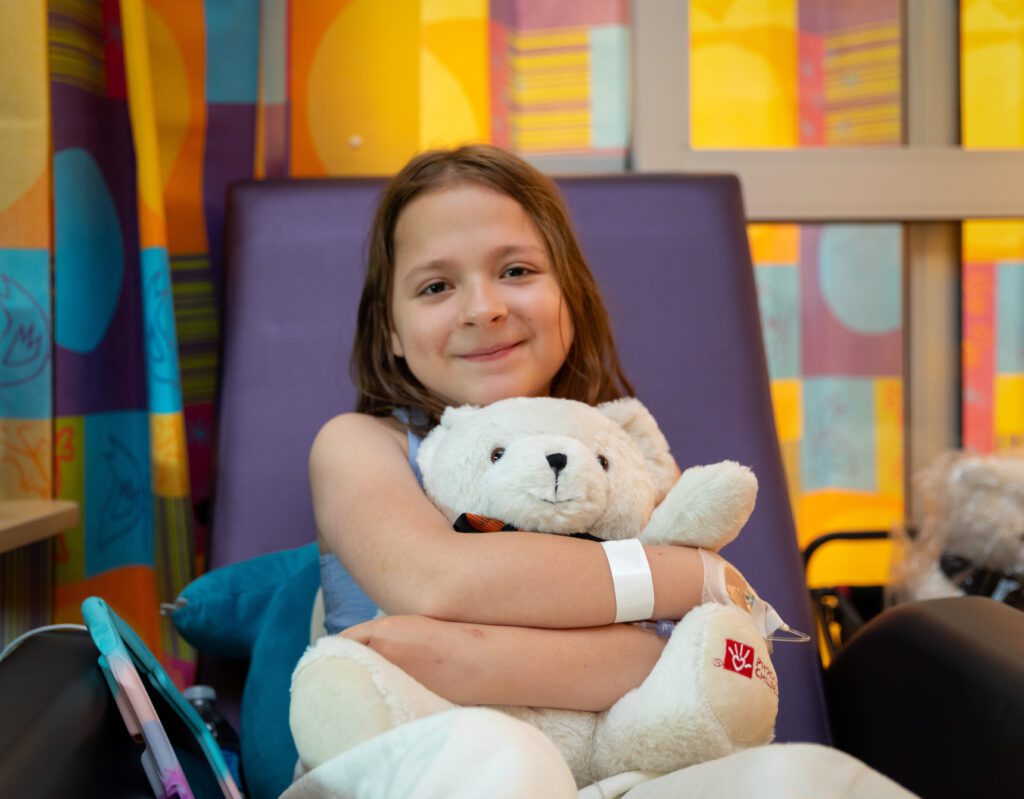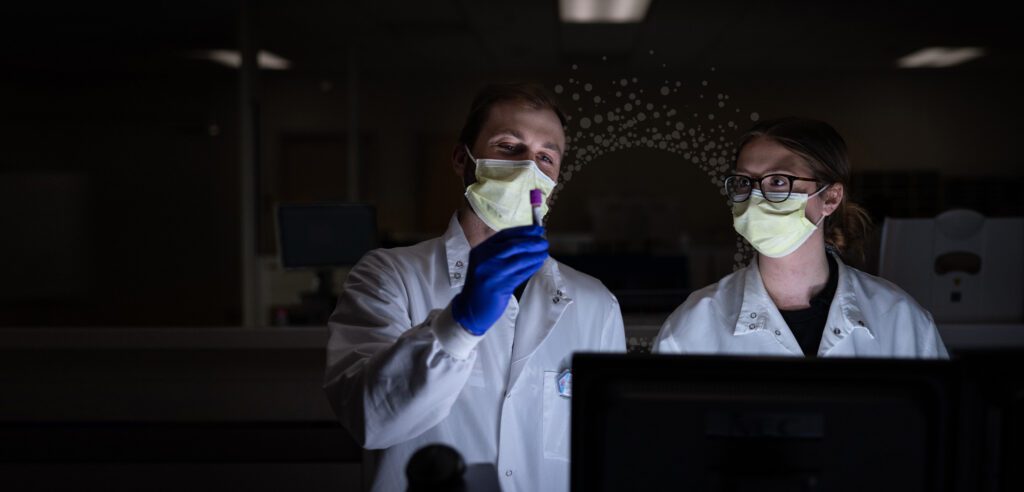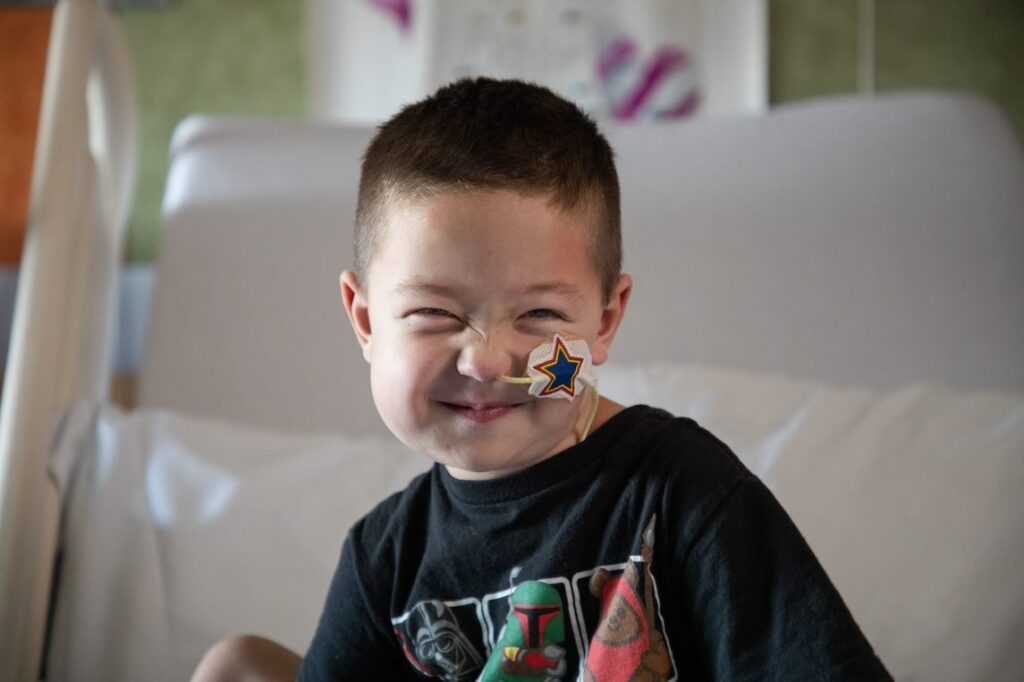Twelve-year-old Madison is wise. Her mom, Tamika, tearfully relates that her daughter often sits on the sidelines of life. But Madison understands that the sacrifices she makes now—for example, missing a club meeting for a physical therapy session—will pay off overall.
When Madison was an infant, her cry revealed her distress. “It was unlike any cry I’d ever heard,” says Tamika. As she grew, specialists identified a laundry list of medical conditions that affect her digestive system and connective tissue: GERD, motility dysfunction, EDS, and brittle bone disease.
These diagnoses cause Madison chronic pain. Some days her pain is two out of 10; other days it’s a 10. Daily actions such as stepping off a curb or bumping her knee can break her bones. She’s had 13 breaks thus far.
Madison knows how to keep going. When she wakes up with intense pain, she has a method for navigating it all. Her medical state can alter the course of her day, but it doesn’t dictate the path of her life—Madison is a dedicated student, a musician and a cheerleader. She’s a girl who’s learned at a young age that acceptance leads to perseverance.
Read on to discover how Madison approaches a life full of adversity.
Madison, in her own words
Q: How would you describe EDS?
A: It’s where my hips, knees, joints and back move in ways they are not supposed to. My hands are useless in the morning—they’re floppy, and I can’t make a fist. The pain I feel daily is a constant aching. There’s only one day I remember when I felt normal.
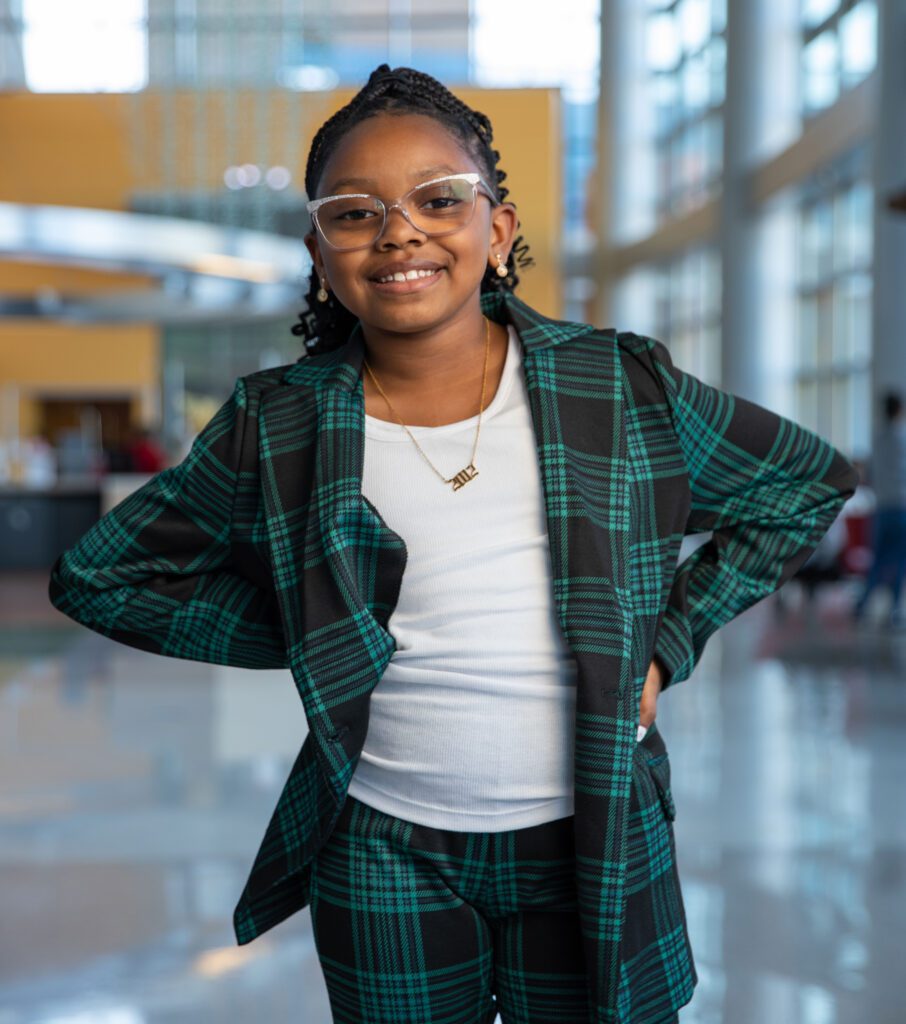
Q: What do you put extra thought into because you have to be careful?
A: Recently, we made a human pyramid at school, and I couldn’t be at the bottom. If someone else falls, they can say, ‘Oh, that hurt,’ and then get back up again. For me, if something hurts, it’s different—there can be a lot behind the pain. Sometimes I look good, but I am not. It’s hard for others to see the stuff that’s on the inside.
Q: How do you get through the daily pain?
A: When something hurts, I stretch or bend it. Then, I think about everything I am going to do that day. I consider each activity and ask myself, ‘Is it worth missing based on how bad I am hurting?’ If my pain is a five it’s not worth it to miss school or a party.
On the days I do stay home, I rest. I don’t forget I’m missing out, but I do find something else to do that will make me happy, like journaling and beading. Or I will think about what I’m looking forward to tomorrow or next week.
Q: Cheerleading is a sport where the likelihood of breaking a bone is high. Why did you decide to join the squad?
A: I’m never afraid of getting hurt, but I was scared to perform in front of a crowd. One of my favorite teachers started the squad so I tried it out. I love cheerleading. I get carried around. I fly. I’ve even done cheerleading in a cast.
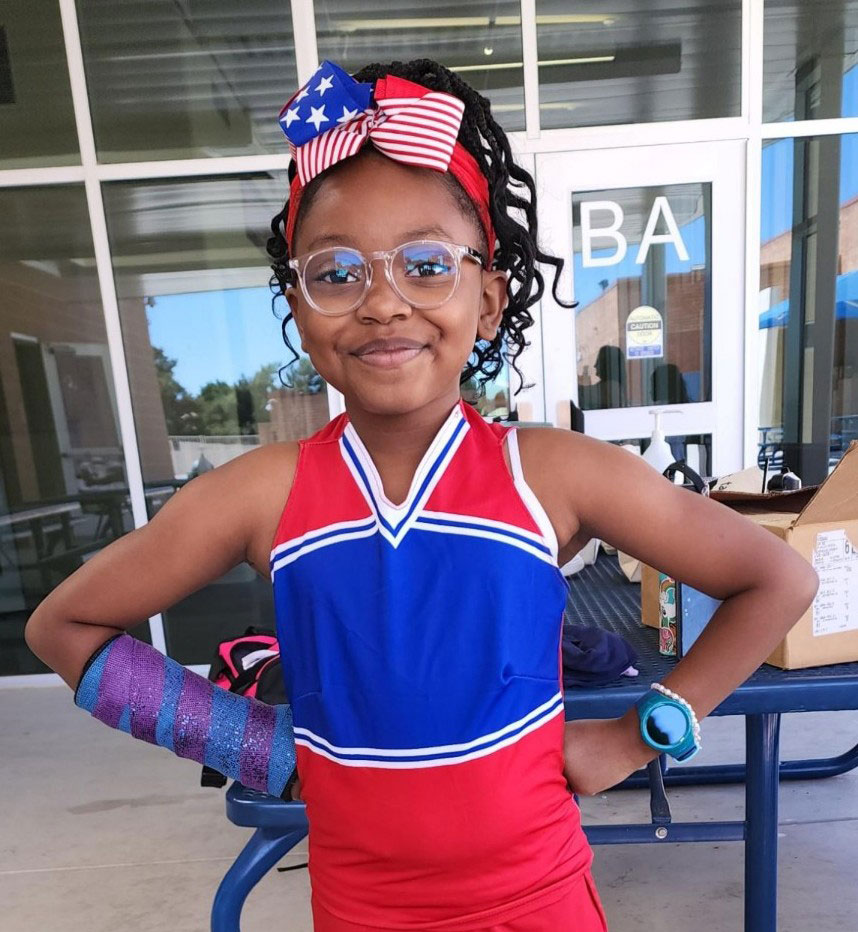
Q: Do you want the other kids at school to know about your medical condition?
A: I don’t go up to someone and tell them everything. I just say, ‘I can’t do that.’ Everyone caught on that I injure easily when I often showed up in a wheelchair or cast.
They do not fully know what’s wrong and I don’t want them to know. If I tell my friends, they'll move on. But those who don’t know me will baby me. For example, if we are playing dodgeball, they won’t hit me.
They won't play the same because they'd think I’ll get hurt or they'd think I’m not capable. That’s why I don’t tell anyone—I want to be treated like everybody else.
Q: How do you think your medical challenges have propelled you to grow?
A: When things do not go as planned, I remain calm. One time I was walking into school, and I couldn’t do it. I had to go back home right away. Sometimes I get sad if I miss something. But overall, I have become a calm person.
Q: You are in a cast three to four times a year—how do you make the best of these situations?
A: I have them rub glitter all over my cast when they make it. I’ve gotten to the point where I bring in my own glitter and I do different colored casts.
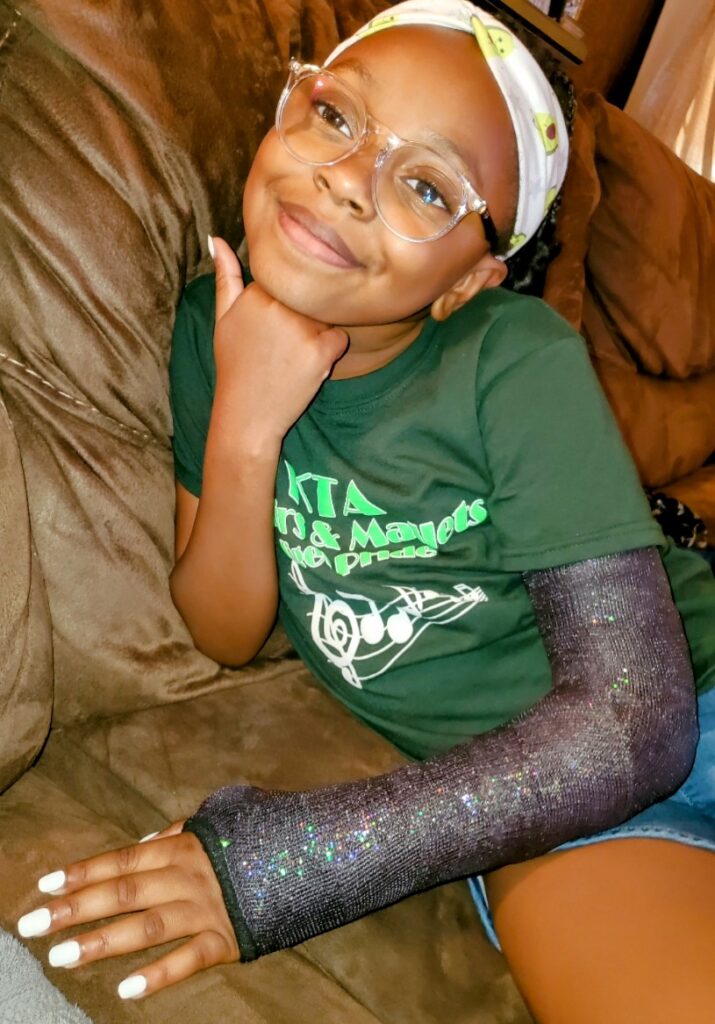
Q: What do you love about Phoenix Children’s?
A: I love Phoenix Children’s because I’m so comfortable now. I’m not overwhelmed and scared anymore. I know what to expect.
Q: What would you say to encourage another person?
A: Eventually, it will all be over. If you are taking an awful medicine, someday you won’t have to take it anymore. If you are in the hospital, one day you will go home. If you are having a bad day, tomorrow may be better. Something good will always happen sooner or later.
Q: What would you say to someone who has given a donation to help kids like you?
A: Thank you. When I walk through Phoenix Children's, I see many kids who have it worse than me. You’re not giving to one group of kids—you’re giving to people who have different problems going on with their bodies. It’s not just a place for sick kids. It’s a place for children who are trying to get better at things.
Help provide hope, healing and world-class health care to patients like Madison today.

